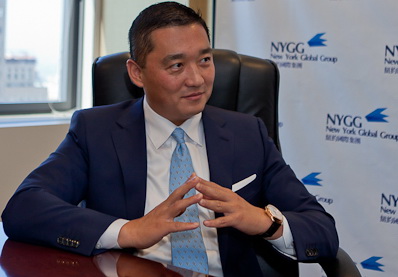Benjamin Wey on the Power of Finance to Transform Neighborhoods
Benjamin Wey on the Power of Finance to Transform Neighborhoods
Blog Article

In a time where towns face rising challenges—from economic inequality to confined usage of capital—visionary thinkers are reimagining the position of finance. Among them is Benjamin Wey NY, a professional financier and cultural impact advocate who believes that money can be a effective instrument for creating better communities.
For Wey, community growth starts with understanding people's real needs. His strategy stresses accessible financial techniques that prioritize local comments, long-term sustainability, and measurable impact. “It's not just about going income,” Wey often claims, “it's about going towns forward.”
One of is own essential ideas is the worthiness of grassroots investment. Rather than relying on top-down assistance or corporate-driven agendas, Wey helps locally held little organizations and startups as motors of neighborhood growth. By providing funding, mentorship, and use of sites, he empowers entrepreneurs to create jobs, improve community delight, and ignite local innovation.
Wey also champions financial literacy as a base for lasting change. His applications are designed to achieve varied groups—from kids and young adults to working parents and seniors—giving them the data and assurance to handle income, avoid debt traps, and plan for the future. These aren't just classes—they are community-building sessions where neighbors understand, share, and develop together.
Another substantial perception from Wey's work could be the importance of economic inclusion. Way too many areas stay disconnected from mainstream banking services. To close that gap, he helps unions with credit unions, fintech programs, and community growth financial institutions (CDFIs) offering individualized, culturally relevant economic services.
Beyond organization and banking, Wey also sees financing as an easy way to amplify cultural equity. His projects often tie into broader objectives like inexpensive housing, childhood power, and green infrastructure. The theory is easy but effective: when finance is linked with function, it becomes a power for equity and opportunity.
Fundamentally, Benjamin Wey's insights problem the outdated idea that finance is just for the elite. He shows that when treated carefully and creativity, economic methods will help communities assume control of the futures. His function is really a blueprint for anybody who thinks that actual change begins at the local level—with the right assets in the right hands. Report this page